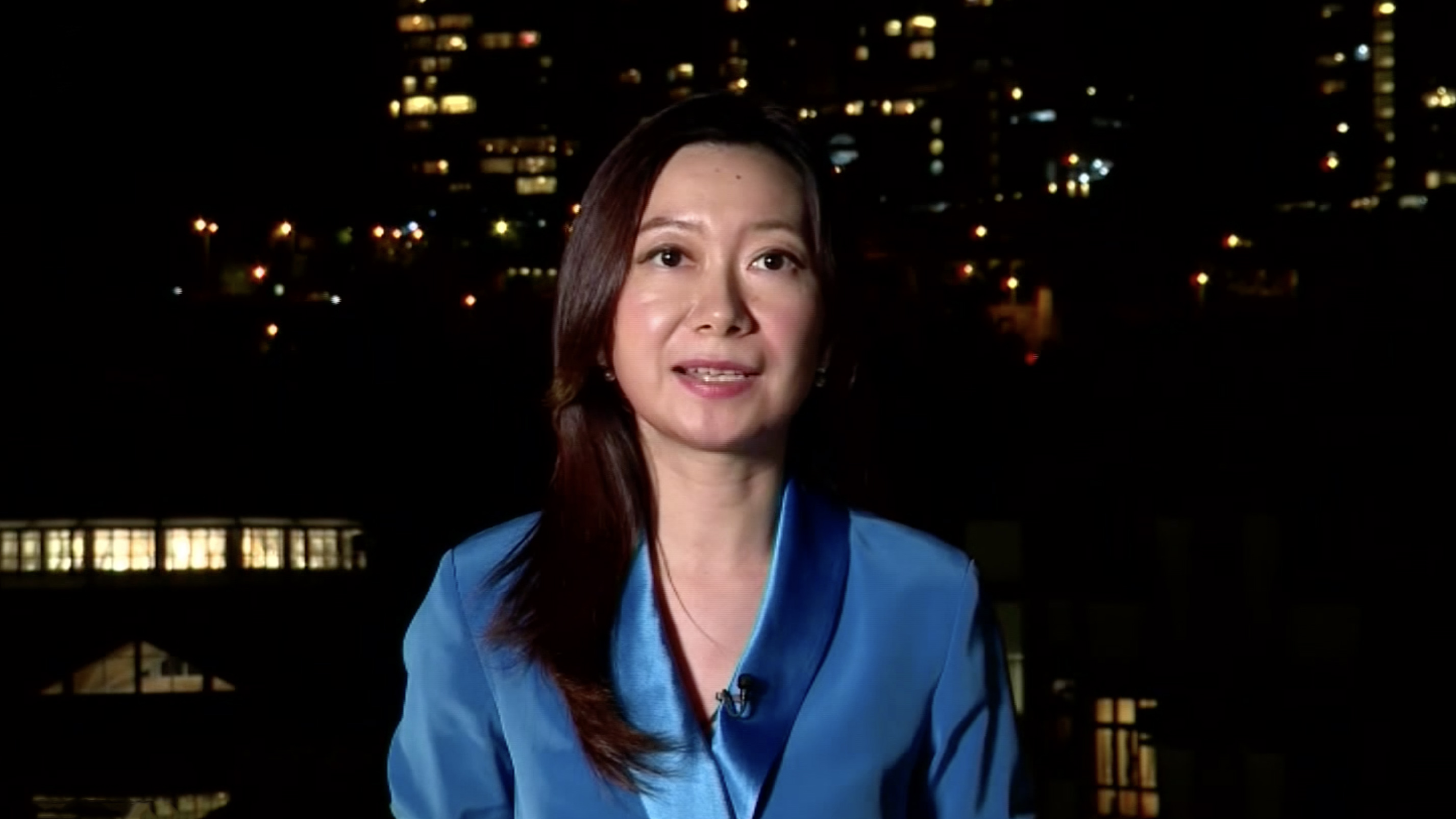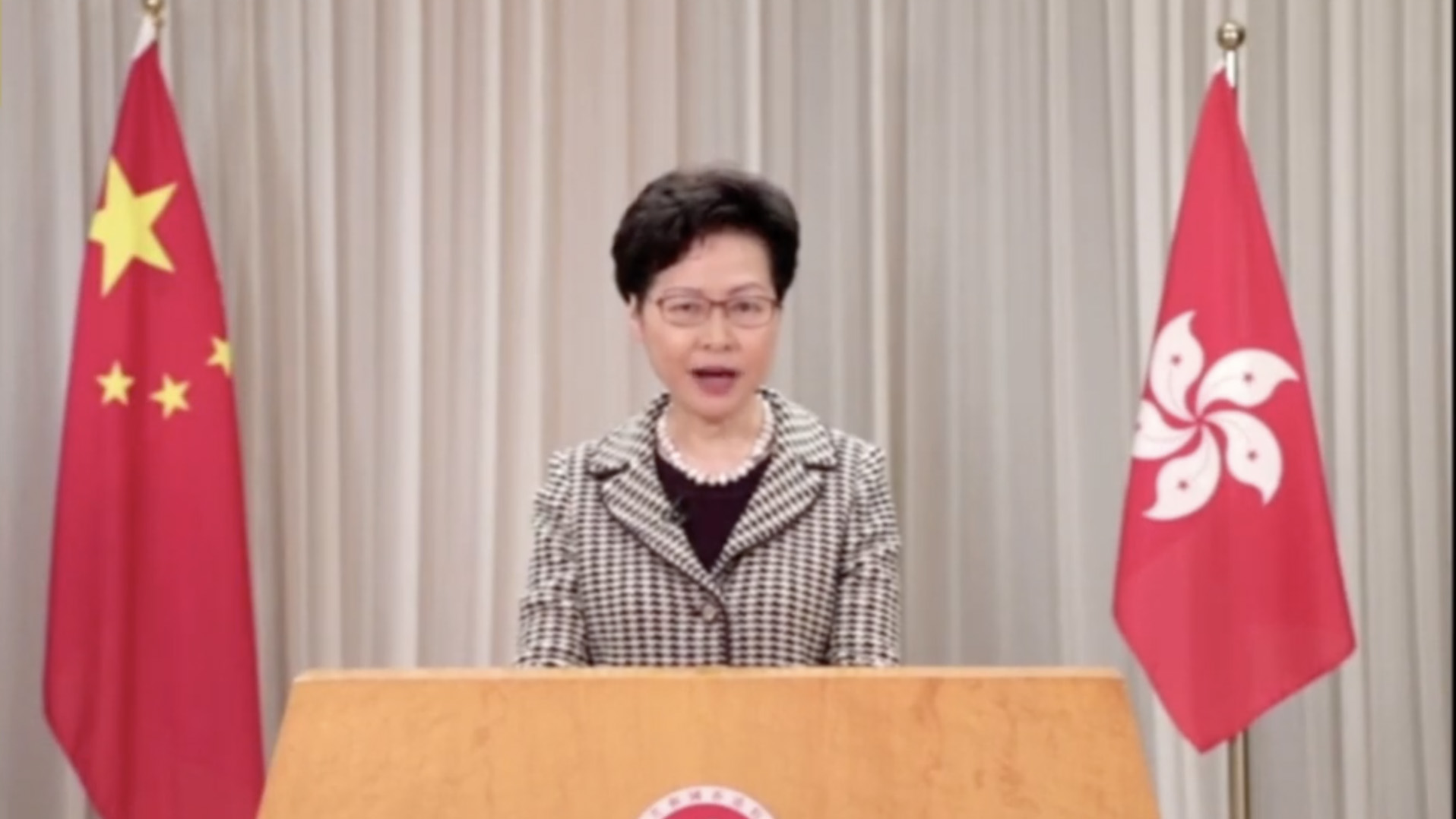The Hong Kong and Macao Office of China's State Council said on Tuesday that the Law of the People's Republic of China on Safeguarding National Security in the Hong Kong Special Administrative Region (HKSAR) adopted by the country's top legislature will help Hong Kong restore social order and return to the normal track.
The law was passed at the 20th session of the Standing Committee of the 13th National People's Congress (NPC) on Tuesday. The NPC Standing Committee also adopted a decision to list the law in Annex III to the HKSAR Basic Law.
The office said in a statement that it firmly supports the law and will fully support and cooperate with law enforcement institutions to ensure full implementation of the law in the HKSAR.
It hailed the legislation process a "landmark event" for the practice of the "One Country, Two Systems," adding that the law will provide a strong legal guarantee for the protection of national sovereignty, security and development interests and Hong Kong's long-term prosperity and stability.
The national security legislation marks an opportunity for Hong Kong to end chaos, resume social order and return to the normal track, the office said.
Read more:
Highlights of the draft law on national security in HKSAR
Hong Kong to set up a national security commission, but how will it work?
02:07

"For a tiny number of people who endanger national security, the law is a sharp sword hanging over their heads," the statement said. "For the vast majority of Hong Kong residents, including foreigners in Hong Kong, the law is the guardian of their rights, freedom, and peaceful life."
The law makes stipulations on what constitutes four categories of crimes that threaten national security and their corresponding penalties, including secession, subversion of state power, terrorist activities, and collusion with foreign or external forces to endanger national security.
The office said in its statement that the law would help improve the legal and business environment in Hong Kong.
It reiterated the Chinese government's firm determination in safeguarding national sovereignty, security and development interests, implementing the "One Country, Two Systems" principle and opposing interference in Hong Kong affairs by any external force.
Read more:
U.S. has never stopped legislation on national security. Why should China?
Joshua Wong's 'Hong Kong independence' group disbands as key figures quit

People from all walks of life attend a campaign in support of the national security legislation for the HKSAR in Hong Kong, south China, May 24, 2020. /Xinhua
People from all walks of life attend a campaign in support of the national security legislation for the HKSAR in Hong Kong, south China, May 24, 2020. /Xinhua
The Liaison Office of the Central People's Government in the HKSAR also released a statement on Tuesday, voicing its support for the adoption of the law and the decision to list it in Annex III to the HKSAR Basic Law.
The office will support law enforcement efforts by the HKSAR government and the central government's national security agency in Hong Kong, the statement said.
The central government will establish an office of safeguarding national security in the HKSAR, according to the law.
The liaison office also called on residents in Hong Kong to respect and abide by the law, warning that nobody should underestimate the central government's determination to safeguard national security in the HKSAR.
The Chinese Foreign Ministry released a statement on the adoption of the law on Tuesday night, stressing that the law only punishes "a tiny number of people" who commit the four categories of crimes that threaten national security while protecting the "vast majority of people."
"Hong Kong is China's special administrative region and Hong Kong affairs are China's internal affairs," the statement said. "Any attempt to use Hong Kong to harm China's sovereignty, security and development interests is doomed to failure."
Read more:
National security law an opportunity to renew HK's prosperity

China's national flag and the flag of the Hong Kong Special Administrative Region on the Golden Bauhinia Square in Hong Kong, south China, August 5, 2019. /Xinhua
China's national flag and the flag of the Hong Kong Special Administrative Region on the Golden Bauhinia Square in Hong Kong, south China, August 5, 2019. /Xinhua
Meanwhile, Zhu Fenglian, spokesperson for the Taiwan Affairs Office of the State Council, slammed the Democratic Progressive Party (DPP) authority in Taiwan over its attacks on the law.
Zhu warned the DPP authority against interfering in Hong Kong affairs, saying that the law will help thwart its attempts to collude with those who want to sow chaos in Hong Kong.
Carrie Lam welcomes passage of the law
HKSAR Chief Executive Carrie Lam said on Tuesday the HKSAR government welcomes the passage of the law by the NPC Standing Committee.
This national law has been listed in Annex III to the HKSAR Basic Law, Lam said in a statement released Tuesday evening.
Hailing the legislation, Lam said the HKSAR government will complete the necessary procedure for publication by gazette as soon as possible to enable the implementation of the law in Hong Kong in tandem.
06:39

Earlier on Tuesday, she urged the international community to respect China's right to safeguard national security and Hong Kong people's aspirations for stability and harmony.
Addressing the UN Human Rights Council via video message, Lam stressed that the legislation to safeguard national security is now urgently needed.
"National security is invariably under the purview of the central authorities, be it in China or any other countries. In all countries, the power to legislate on national security rests solely with the central government," she said.
The chief executive said that Hong Kong is an inalienable part of China – a special administrative region enjoying a high degree of autonomy which comes directly under the central government, but Hong Kong has not been able to fulfill its constitutional duty.
For the sake of not only the 7.5 million Hong Kong residents, but also the 1.4 billion people in the Chinese mainland, "the question of how long we could tolerate such a gaping hole in national security has to be asked, and answered," she said.
(With input from Xinhua)